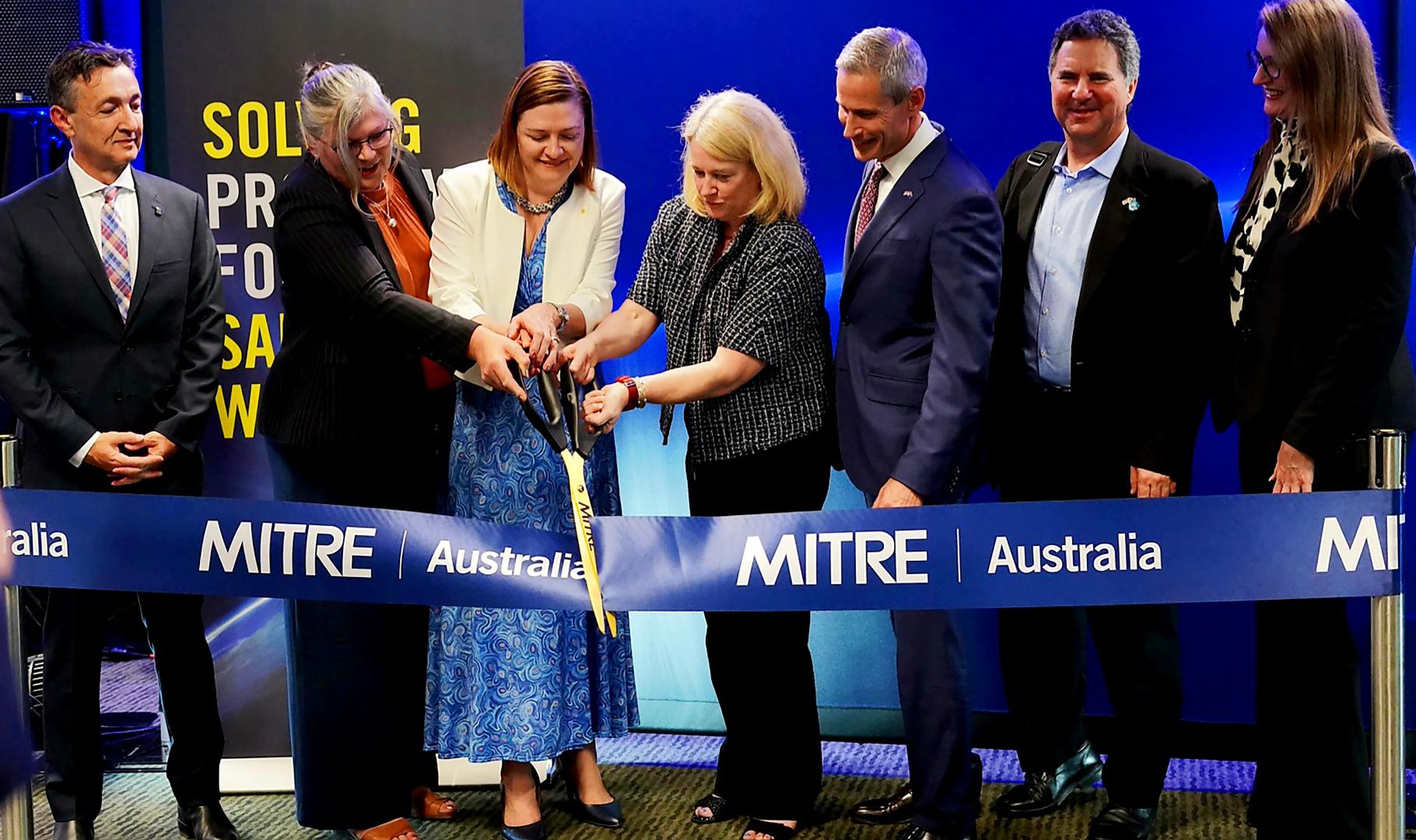
MITRE Australia, a not-for-profit operating in the public interest, has opened a headquarters office and advanced systems engineering centre in the Brindabella Business Park in Canberra to support growing engagement with Australian government, business, and research institutions.
Building on AUKUS and bi-lateral Australian-U.S. accords, MITRE Australia signed agreements with new collaboration partners, including Flinders University, to foster development of whole-of-nation solutions that strengthen the defence of Australia, as well as security and prosperity in the Indo-Pacific region.
The new agreements include Flinders University, Australian National University, University of New South Wales (UNSW), and the University of Adelaide Building on the goals of the AUKUS agreement, these technology collaborations focus on enhancing cybersecurity, artificial intelligence, maritime autonomy, quantum, and other technology innovations to advance whole-of-nation solutions.
"These partnerships accelerate Australia's sovereign capabilities in defence, cybersecurity, and space as well as strengthen Australia's technology leadership and coalition partnerships," said Keoki Jackson, senior vice president and general manager, MITRE National Security Sector.
"Australia plays a critical role in the Pacific. We are committed to help accelerate the implementation of the AUKUS agreement and promote stability, security, and prosperity in the Indo-Pacific region."
Julie Bowen, MITRE's senior vice president for operations and outreach, and chief legal officer, added, "MITRE has more than 60 years of history bridging government, industry, and academia to foster transformational innovation. We're bringing that experience to the Australian government and partners to accelerate game-changing, real-world results. These whole-of-nation collaborations will catalyse solutions to some of the world's most complex challenges."
Flinders University Defence Partnerships Director, Tony Kyraciou, said: "This new Flinders University and MITRE agreement is enabling the further development of our research strengths in marine autonomy, cybersecurity, and other scientific fields to ensure its effective application in Australia's national security with our trusted US partners. "We look forward to working with MITRE in accelerating our ground-breaking research initiatives in priority areas, highlighted by the AUKUS agreement, and engaging with defence industries supporting areas of mutual interest."
Vice Admiral Paul Maddison (ret'd), director of UNSW's Defence Research Institute, said, "UNSW is thrilled to be partnering with MITRE and applauds the strategic vision behind the decision to incorporate in Australia. As a defence research and education intensive university with a decades-long formal relationship with the Department of Defence at the Australian Defence Force Academy, UNSW is committed to accelerating the defence concept to capability cycle, especially in the priority capability areas highlighted by the AUKUS agreement. By activating UNSW's ground-breaking and world-class research expertise across MITRE's deep systems engineering networks, I'm certain that great opportunities will be generated to collaborate at speed in service to the shared national security interests of Australia and the USA."
Keith Nugent, deputy vice-chancellor, research & innovation, The Australian National University, said, "We welcome MITRE to Australia and look forward to working together to forge new engagements with the US as partners under the AUKUS agreement. Through the ANU-MITRE MOU, the Australian National University will work with MITRE to increase our engagement with defence industries to ensure our nation's security."
Simon Lucey, director of the University of Adelaide's Australian Institute for Machine Learning, said, "Building Australia's sovereign capability in artificial intelligence is vital for our future security and prosperity. This new partnership between MITRE and the University of Adelaide's Australian Institute for Machine Learning will see our leading AI research help support greater regional stability for Australia and its global allies."






